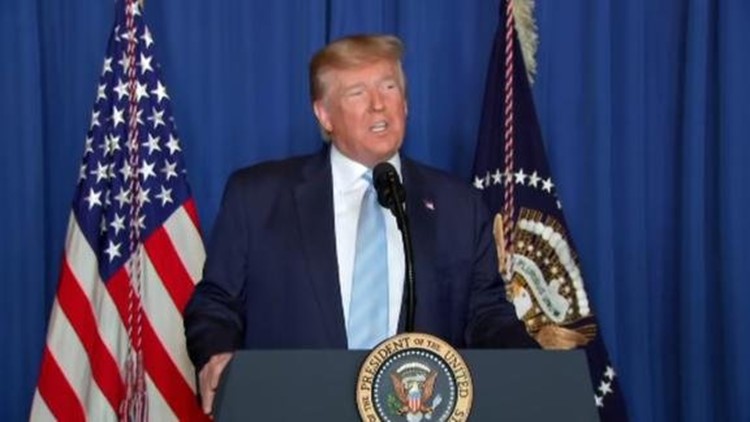In the hours after the Pentagon announced the killing of Iranian Maj. Gen. Qasem Soleimani on Thursday, “World War III” was trending on Twitter. Traffic to the US Selective Service, the agency that would be responsible for any eventual military draft, spiked so high that the website crashed.
Also trending was “Wag the Dog,” the 1997 movie that conjured up the notion of a president trying to distract from a scandal by spreading news of overseas conflict. Remarkably, that dark comedy was officially released just days before news broke about President Bill Clinton’s real-life scandal, his relationship with a White House intern. That scandal played out as the US fired missiles at Iraq and resulted in an impeachment trial in the Senate. “Wag the Dog” became a pop culture meme, and some of President Donald Trump’s critics trotted it out to question the timing of the killing of Soleimani, who commanded Iran’s Islamic Revolutionary Guards Corps Quds Force.
It’s much more complicated. “The significance of Thursday’s US strike against Qasem Soleimani cannot be overstated because he ran Iran’s military operations across the Middle East,” Peter Bergen wrote. “Soleimani also oversaw operations against US servicemen in Iraq by Shia militias in which hundreds of American servicemen were killed following the US invasion of Iraq in 2003.” The general had “the blood of many Americans on his hands.”
Retired US Army Lt. Gen. Mark Hertling noted, “While the Ayatollah Ali Khameini once described Iran’s premier general as his ‘living martyr,’ most Americans — myself included — and many Iraqis, Kurds and Syrians who faced him and his forces on the battlefield will describe Soleimani as a mass murderer, a war criminal, a terrorist and a despicable demon.”
Soleimani’s killing was a sharp escalation in an already tumultuous conflict. It came days after protesters stormed the US embassy compound in Baghdad in response to American airstrikes on an Iranian-backed militia.
Christiane Amanpour wrote that Soleimaini was “a shadowy spymaster mythologized among Shiites and loathed by Iran’s American adversaries” and the world is watching “to see how and where Iran retaliates after three days of official mourning end.” The key question now: “What’s the strategy against Iran? In the words of a former UK ambassador in the region, does the Trump administration have a plan to prevent this killing from being more than just ‘drive-by adventurism’?”
Writing before the general was targeted, Aaron David Miller noted “the inconsistency and vulnerability of the Trump administration’s policies toward both Iran and Iraq. Like a modern-day Gulliver, President Trump is metaphorically wandering around a Middle East where he’d rather not be, tied up both by smaller powers whose interests are not his own — and by America’s illusions about the region, perpetuated by Trump who somehow believes he can force Iran to bend to his will.”
American officials justified the strike by saying Soleimani was developing plans to attack American interests, but legal experts questioned it. “Assassination cannot be justified by the law of self-defense,” wrote Mary Ellen O’Connell, a professor at Notre Dame’s law school. “Trump is not the first president to carry out drone assassinations in violation of international law,” she noted. But “he has taken the practice to a new level of lawlessness.”



